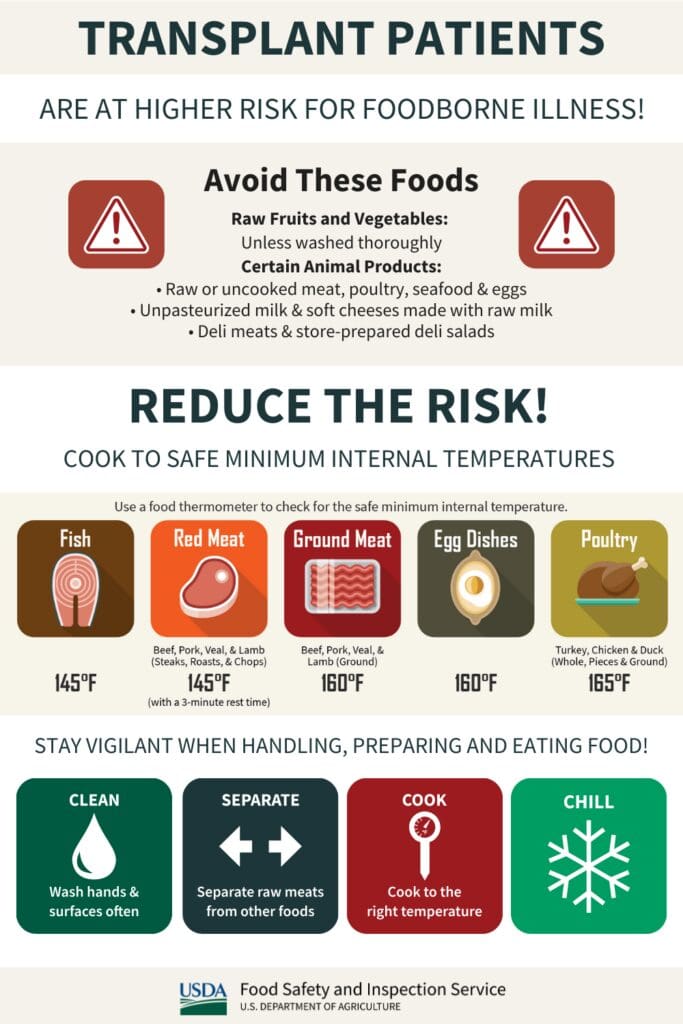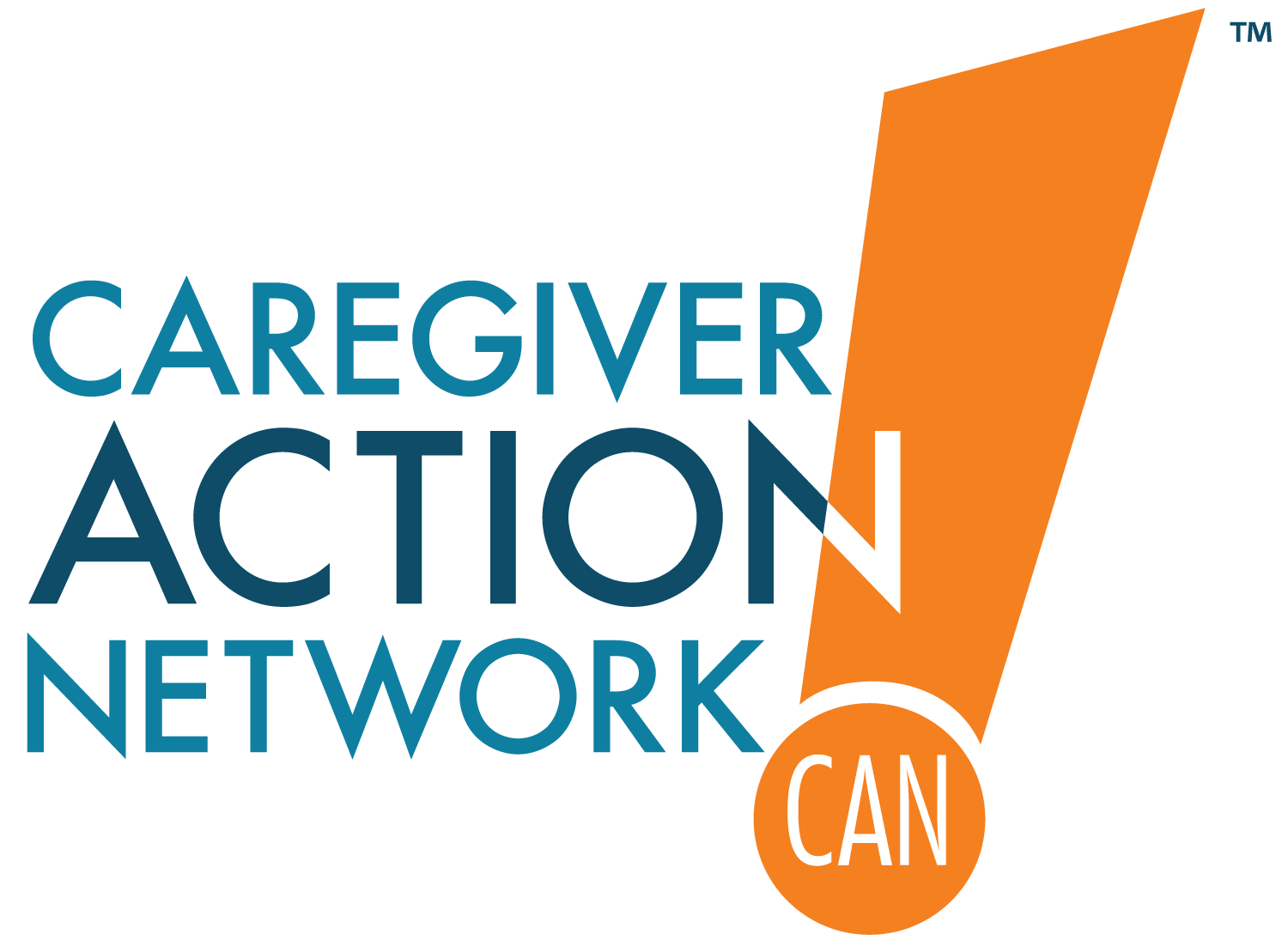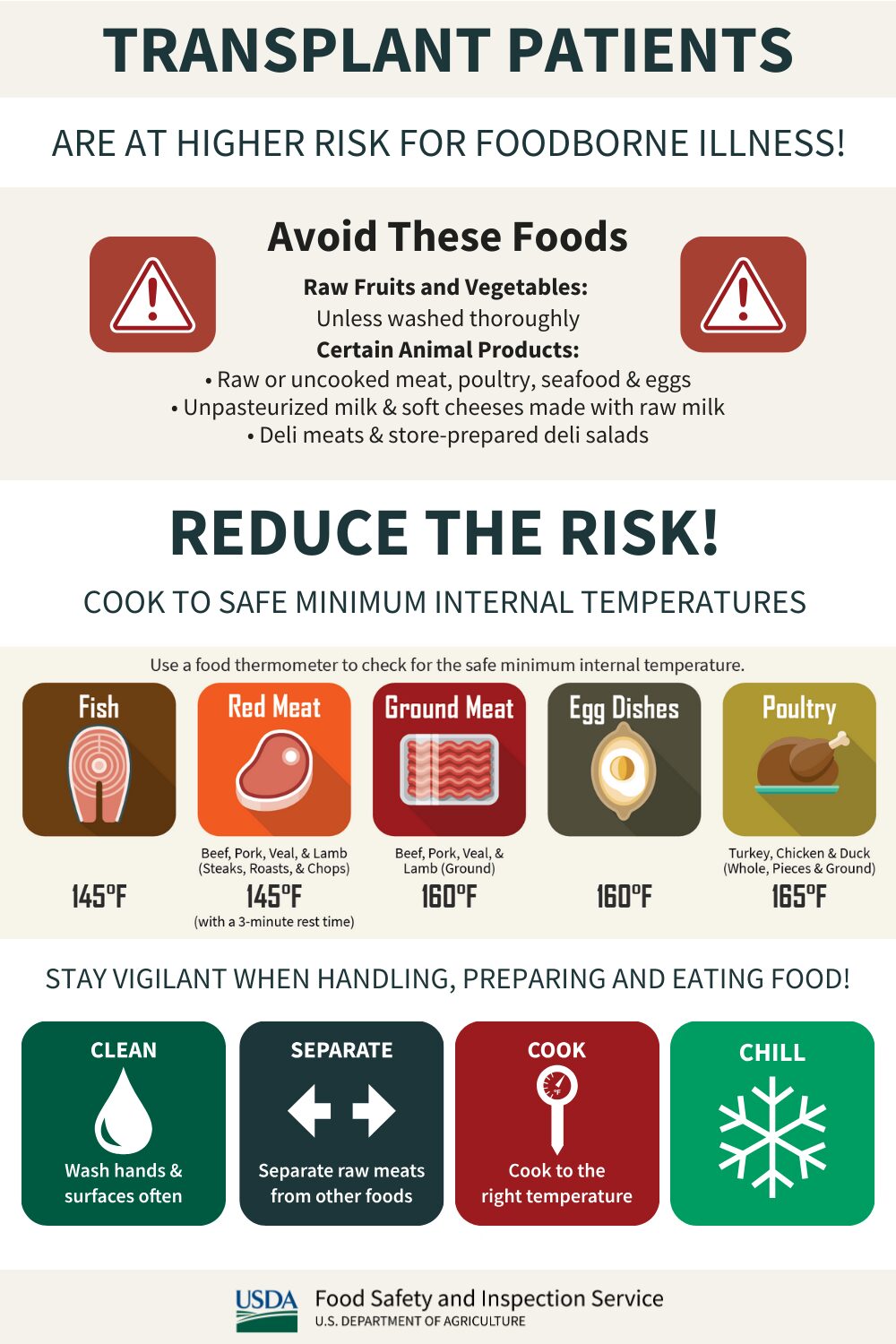As a transplant recipient, you are probably familiar with the topic of transplant rejection. It’s the body’s natural reaction or immune system’s response to “foreign invasion.”
As a transplant recipient, you are more likely to have a lengthier illness, undergo hospitalization, or even die, should you contract a foodborne illness. To avoid this, you must be especially vigilant when handling, preparing and consuming foods.
Some foods are riskier for you than others. In general, the foods that are most likely to contain harmful bacteria or viruses fall in two categories:
- Uncooked fresh fruits and vegetables.
- Some animal products, such as unpasteurized (raw) milk; soft cheeses made with raw milk; raw or undercooked eggs, raw meat, raw poultry, raw fish, raw shellfish and their juices; and luncheon meats and store-prepared deli-salads, such as chicken and seafood.
The risk these foods may pose depends on the origin or source of the food and how the food is processed, stored and prepared.


